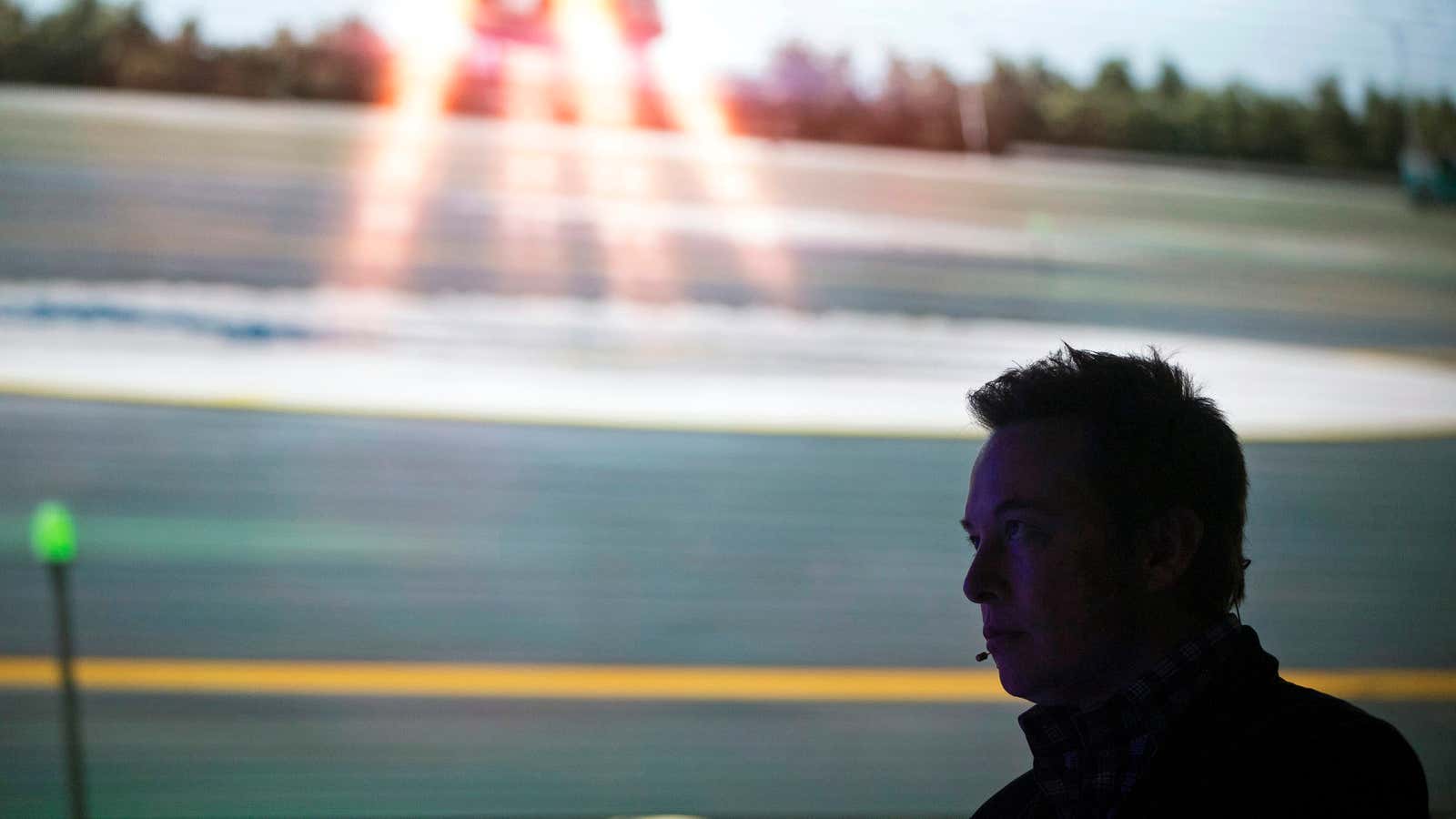With all the focus on fund-manager Fidelity’s 25% markdown of its investment in Snapchat last week, one of the few private investments the firm boosted flew under the radar: Fidelity said its stake in Elon Musk’s rocket-maker SpaceX grew by 15% since January, which would value the company at more than $11.5 billion.
This is despite SpaceX’s explosive launch failure in June, and the six months delay in returning to operations—which has had outsiders focused on the company’s growing pains as it establishes itself as a serious player in the space access industry and contemplates new ventures in satellite construction.
SpaceX employees, however, remain optimistic and expect to fly twice this December—once to launch a series of Orbcomm satellites and a second time to test an unmanned Dragon 2 spacecraft, one of the steps the company must fulfill to meet its goal of flying with astronauts to the International Space Station in 2017.
Fidelity invested in SpaceX in January 2015, putting up $16.75 million to join Google in a $1 billion fundraising round. At the time, SpaceX said the two new investors owned just under 10% of the company, suggesting a valuation of just over $10 billion.
Fidelity now values its SpaceX stake at $19.25 million, a 15% increase. Increasing the total valuation by the same 15% implies that the company is now worth at least $11.5 billion.
As a private company, SpaceX’s financials are fairly opaque. But we have some sense of the firm’s revenue: It has booked as much as $7 billion in future revenue from 50 commercial launch bookings over the next several years, and last year won a $2.6 billion contract to build the Dragon 2 and transport astronauts to the International Space Station. It also is bidding for a second contract to ferry cargo to ISS, which is expected to be worth hundreds of millions of dollars.
SpaceX’s value exceeds that of rivals. United Launch Alliance, a key SpaceX competitor in the US, is reportedly the subject of a $2 billion takeover bid by the space firm Aerojet. But ULA has older technology and less commercial business than SpaceX. Arianespace, the European private launch contractor, was valued between $340 and $640 million as France prepared to sell its stake in the firm this summer, but it does not manufacture its own rockets.
While SpaceX executives insist the public markets are far from their minds, they clearly have the confidence of their private backers. But even that may be sorely tested if the company cannot bounce back from its trying summer with a successful launch.
